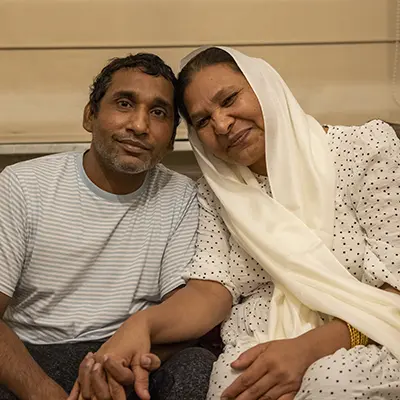Three in four pro-life students “have been silenced by an academic” because of their views
Pro-life student leaders speak out against censorship as “Protect Free Speech” campaign builds momentum
LONDON (12th March 2021) – Which views and opinions are acceptable on UK campuses? According to a survey published by the Alliance of Pro-Life Students, half of all students who support the right to life from conception have been told that their views are “unacceptable to express”. The survey affirms findings from November in polling commissioned by ADF UK. Over a quarter of students “self-censor” their views, including those which are political, religious or ethical. Ahead of World Speech Day (15 March), students are raising their voices about their experience of censorship, in conjunction with ADF UK’s campaign to Protect Free Speech at university.
“Freedom of speech is the foundation of every free and democratic society. Of all places, university is where students should be free to debate and explore ideas, even those with which they might disagree. This simply does not work when a students’ representative body ‘picks sides’ and censors students that it disagrees with. Students’ Unions have a legal obligation to treat all groups fairly, and should focus on cultivating an environment where students are able to have difficult conversations without fear of censorship,” said Ryan Christopher, Director of ADF UK.
Freshers “Fair”? Pro-life students speak out about discrimination and censorship
The campaign is gathering signatures for an open letter to 10 Downing Street, asking for steps to be taken to end cancel culture on campus. The campaign has several asks, including a guarantee that university staff and student representatives receive comprehensive training on their responsibilities to uphold and protect freedom of speech on campuses as part of their basic induction.
“During one event, the society were asked to close the curtains while a female MP was speaking to them about sex-selective abortions because the presence of the society and other pro-life students was deemed upsetting to those who could see into the room from outside,” recalls Georgia Clarke, Co-President of Oxford Students for Life, 2016-2017.
“If students are forbidden from even looking at those who disagree with certain views, how will we ever learn to engage, persuade, negotiate or even listen in the real world?”, she continued.
Peri Dalkic, President of the Aberdeen Life Ethics Society, reported that her society faced investigation from the Student Union after complaints were made about “triggering” content during a Q&A event. Furthermore, the group faced online abuse. Their female members were threatened and branded “fat mutants” on Facebook, and the society had condoms thrown at them during the freshers’ fair.
Pro-life societies struggle against threat of disaffiliation
Despite the affiliation of abortion-supporting societies by student bodies, several “Students for Life” groups have faced disaffiliation, including groups at the Universities of Nottingham, Glasgow, Strathclyde and Aberdeen. Such action restricts societies from access to funding, and the ability to host events on campus. Several groups have overturned their ban with legal support from human rights group ADF UK.
“We were told we couldn’t become a group on campus because the University didn’t take a stance on abortion. But after discovering there were already three pro-abortion societies active on campus, we knew we were being silenced…I remember before our group was affiliated, campus newspapers would write cruel and untrue pieces about us. We couldn’t do or say anything because we didn’t have a voice. Now that we have been affiliated with the support of ADF UK, life is very different for us on campus. We are a group who have been given the space to open up important conversations,” said Grace Deighan, former President of Glasgow Students for Life.
Julia Rynkiewicz, a midwifery student from Nottingham University, even faced a fitness-to-practise investigation and suspension from her course because of her pro-life activity on campus. With support from ADF UK, she received a settlement and an apology from the university.
“Putting my life on hold because of an unjust investigation was really difficult, both mentally and emotionally. The settlement demonstrates that the university’s treatment of me was wrong, and while I’m happy to move on, I hope that no other student will have to experience what I have. What happened to me risks creating a fear among students to discuss their values and beliefs, but university should be the place where you are invited to do just that,” said Ms. Rynkiewicz.
In February, the Department for Education took significant steps to respond to evidence that a quarter of students are “self-censoring” their views at university. Proposals were made to better protect open conversation, such as through the creation of a right to redress in law for students and individuals who have suffered the negative consequences of censorship, including expulsion from university courses. Students and academics could possibly receive compensation for harm caused by censorship. While such progress creates hope for pro-life students, more must be done to turn the proposals into tangible protections for all students.













